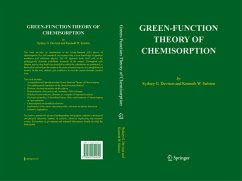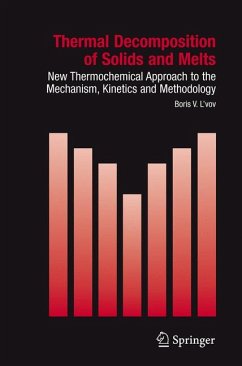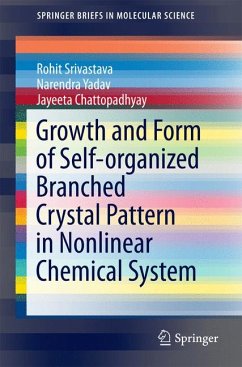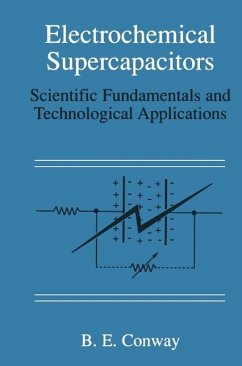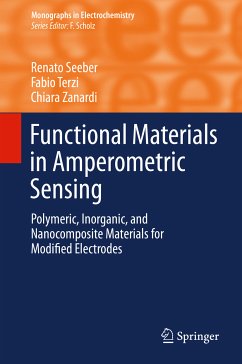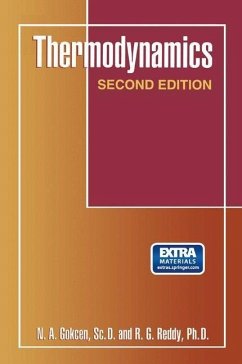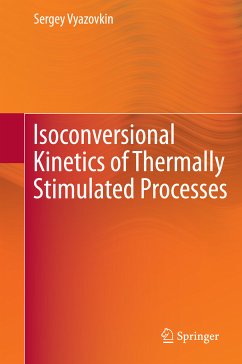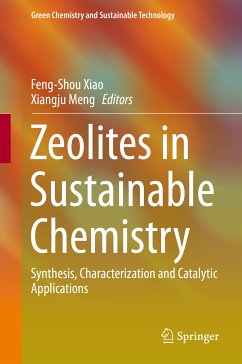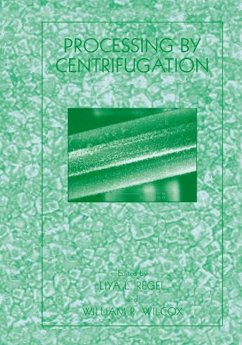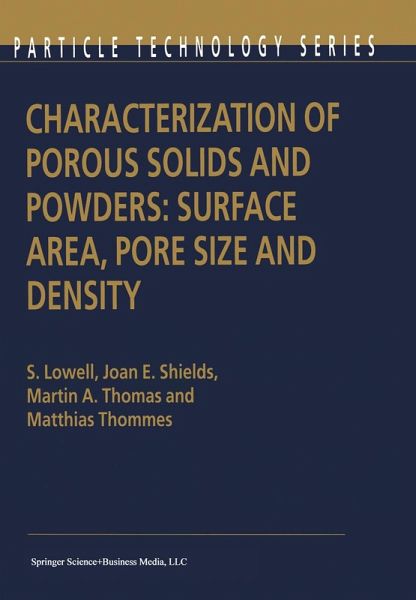
Characterization of Porous Solids and Powders: Surface Area, Pore Size and Density (eBook, PDF)
Versandkostenfrei!
Sofort per Download lieferbar
177,95 €
inkl. MwSt.
Weitere Ausgaben:

PAYBACK Punkte
89 °P sammeln!
The growth of interest in newly developed porous materials has prompted the writing of this book for those who have the need to make meaningful measurements without the benefit of years of experience. One might consider this new book as the 4th edition of "Powder Surface Area and Porosity" (Lowell & Shields), but for this new edition we set out to incorporate recent developments in the understanding of fluids in many types of porous materials, not just powders. Based on this, we felt that it would be prudent to change the title to "Characterization of Porous Solids and Powders: Surface Area, P...
The growth of interest in newly developed porous materials has prompted the writing of this book for those who have the need to make meaningful measurements without the benefit of years of experience. One might consider this new book as the 4th edition of "Powder Surface Area and Porosity" (Lowell & Shields), but for this new edition we set out to incorporate recent developments in the understanding of fluids in many types of porous materials, not just powders. Based on this, we felt that it would be prudent to change the title to "Characterization of Porous Solids and Powders: Surface Area, Porosity and Density". This book gives a unique overview of principles associated with the characterization of solids with regard to their surface area, pore size, pore volume and density. It covers methods based on gas adsorption (both physi and chemisorption), mercury porosimetry and pycnometry. Not only are the theoretical and experimental basics of these techniques presented in detail but also, in light of the tremendous progress made in recent years in materials science and nanotechnology, the most recent developments are described. In particular, the application of classical theories and methods for pore size analysis are contrasted with the most advanced microscopic theories based on statistical mechanics (e.g. Density Functional Theory and Molecular Simulation). The characterization of heterogeneous catalysts is more prominent than in earlier editions; the sections on mercury porosimetry and particularly chemisorption have been updated and greatly expanded.
Dieser Download kann aus rechtlichen Gründen nur mit Rechnungsadresse in A, B, BG, CY, CZ, D, DK, EW, E, FIN, F, GR, HR, H, IRL, I, LT, L, LR, M, NL, PL, P, R, S, SLO, SK ausgeliefert werden.



